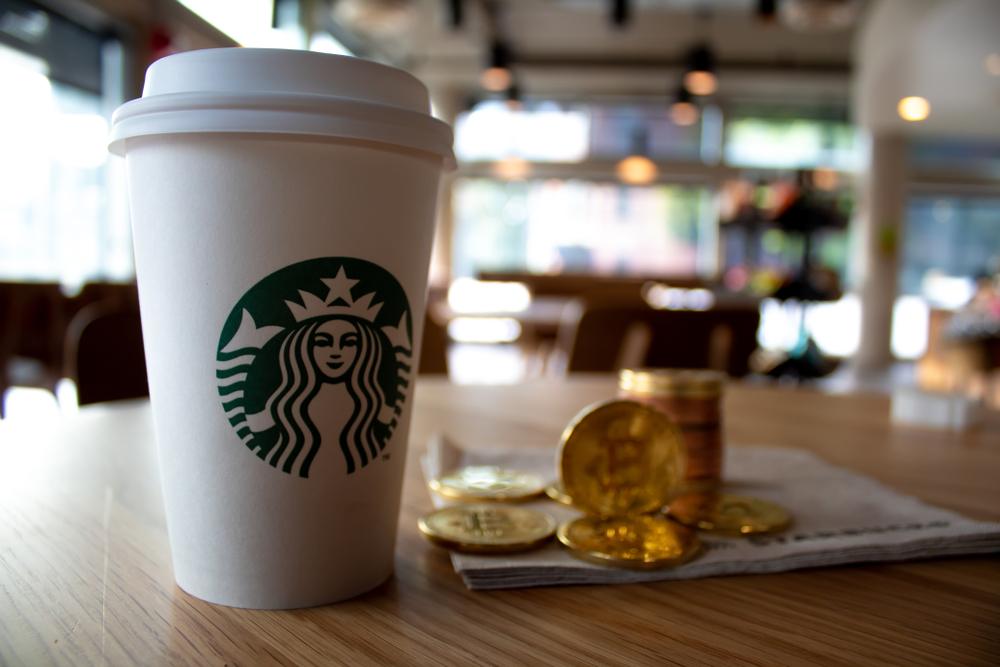Starbucks Odyssey NFT Beta Dropped Despite Web3’s Potential to Bolster Loyalty Programs

Starbucks is shuttering NFT loyalty program "Odyssey".
- Starbucks’ NFT rewards program will be closed by the end of March 2024.
- Earned collectibles can still be traded on Nifty Gateway.
- Web3 loyalty ventures by Web2 firms continue to fail despite numerous possibilities with NFT technologies.
Starbucks and its non-fungible token (NFT) loyalty scheme is being discontinued from March 31, 2024.
Seeing the huge potential to enhance and boost loyalty programs, Web2 companies have tried to integrate cryptocurrencies and NFTs into their offerings, so why do they struggle to gain traction?
Starbucks Odyssey Beta: Closed
Launched in late 2022 , Odyssey was yet another attempt by a Web2 company to capture some portion of the Web3 market using NFT and crypto-based loyalty rewards schemes.
Just like many others, the one offered by Starbucks gamified rewards by offering activities and coffee-adjacent games that spurred ongoing participation. But for Starbucks, this is no more. With regards to the reasoning for closing its Web3 project, the updated FAQ from Starbucks ambiguously states:
“The Starbucks Odyssey Beta must come to an end to prepare for what comes next as we continue to evolve the program.”
As per the post, the users will have a week to complete any remaining activities (called journeys) which end on March 25, 2024. Starbucks Odyssey community lead and co-author of the book “The Everything Token”, posted to Twitter:
That said, users won’t be losing their Starbucks NFTs, or Stamps, which they would collect by completing Journeys, and could buy and sell on the Odyssey marketplace. Instead, the tokens are hosted on Nifty Gateway . But they will now need to sign up for Nifty using their Starbucks Rewards email to access them there.
A Tedious Odyssey?
Well, the issue may rest in the approach, implementation, and execution of an NFT/crypto-based loyalty program, as opposed to the technology itself, and this seems to be where these Web3 programs fail.
Attempting to tap into some 31.4 million active Starbucks Rewards customers U.S. users, Odyssey NFTs, and Odyssee Points were earned through numerous activities, and could be exchanged for “unique benefits and experiences.”
These activities appear to have a great deal of tedium attached. Users report having to spend a great deal of time watching videos and doing quizzes to earn points, visiting locations with a camera phone, or making regular purchases for weeks in a row.
Customer loyalty programs can be as simple as collecting stamps on a coffee shop card until you get enough for a freebie, and it is probably fair to say that the typical consumer does not want to spend any more time and money to reap the benefits of a loyalty program.
This could lead many to think that the ‘Web3’ element of the offering is to blame, and not the actual implementation of it.
Where Web2 Fails, Web3 Prevails?
The NFT market may be down from its all-time highs, but it is still a powerful technology that is always improving in utility. So why aren’t Web3 loyalty programs from some of the most recognizable brands on Earth catching on?
Again, strategy and execution appear to be at the center of these attempts to implement, or at least capture, some portion of the Web3 market by traditional companies. Reddit, one of the most popular websites on the Internet launched the now-discontinued “Community Points Beta” in 2020 that incentivized users’ engagement on certain subreddits by rewarding them with crypto tokens.
As a measure of a user’s “reputation”, points could be used to unlock special features, memberships, unique badges, animated emojis, and so on. It was a relatively simple idea that, in theory, should have worked. However, a lack of proper preparation seems to have scuppered Reddit’s Web3 ambitions.
Reportedly, the Reddit team was underprepared and lacking the resources it needed to scale, so they decided to shut it down in 2023, plummeting the value of those tokens. Naturally, the community felt wronged.
A Return on Investment
With Web3 technologies, companies can indeed distribute exclusive offers, discounts, and other perks to their loyal customers in ways that have never been done before.
For example, the Kings of Leon album “When You See Yourself ” was partially released as an NFT that came with a myriad of bonus features and digital goodies.
A limited run of these albums were “golden tickets” which granted the token owner a lifetime guarantee of having four front-row seats at every single King of Leon concert, which included exclusive VIP treatment before, during, and after the concert, including meeting with the band.
Though it isn’t exactly scoring points and earning rewards over time for continued engagement, it is still promoting brand loyalty by giving the consumer a return for their investment whether time or money.
Imagine Starbucks had less tedium, and instead had a unique NFT representing a customer’s loyalty card, onto which a dozen features could be programmed and unlocked through numerous mechanisms and schemes. Would Odyssey still be with us today?
Web2 Incentives Pinned on Web3 Technologies
To some people, these efforts to bring Web3 to loyalty schemes are just a cash grab from major companies looking to exploit a more speculative user base during moments of market frenzy.
Arguably, Starbucks could have achieved what it had set out to do with Odyssey without leveraging any Web3 technology at all. But, that’s not to say it has been a total failure either.
As for the reasoning behind its closure, Starbucks cleverly writes :
“The Starbucks Odyssey Beta must come to an end to prepare for what comes next as we continue to evolve the program.”
Speculatively, Starbucks’ Odyssey may have left users overwhelmed or isolated by going a little ‘too’ Web3 with all the bells and whistles without quite thinking about how to make it engaging or sustainable.
Some people probably just wanted the occasional free coffee or cool NFT that might sell for a profit.


